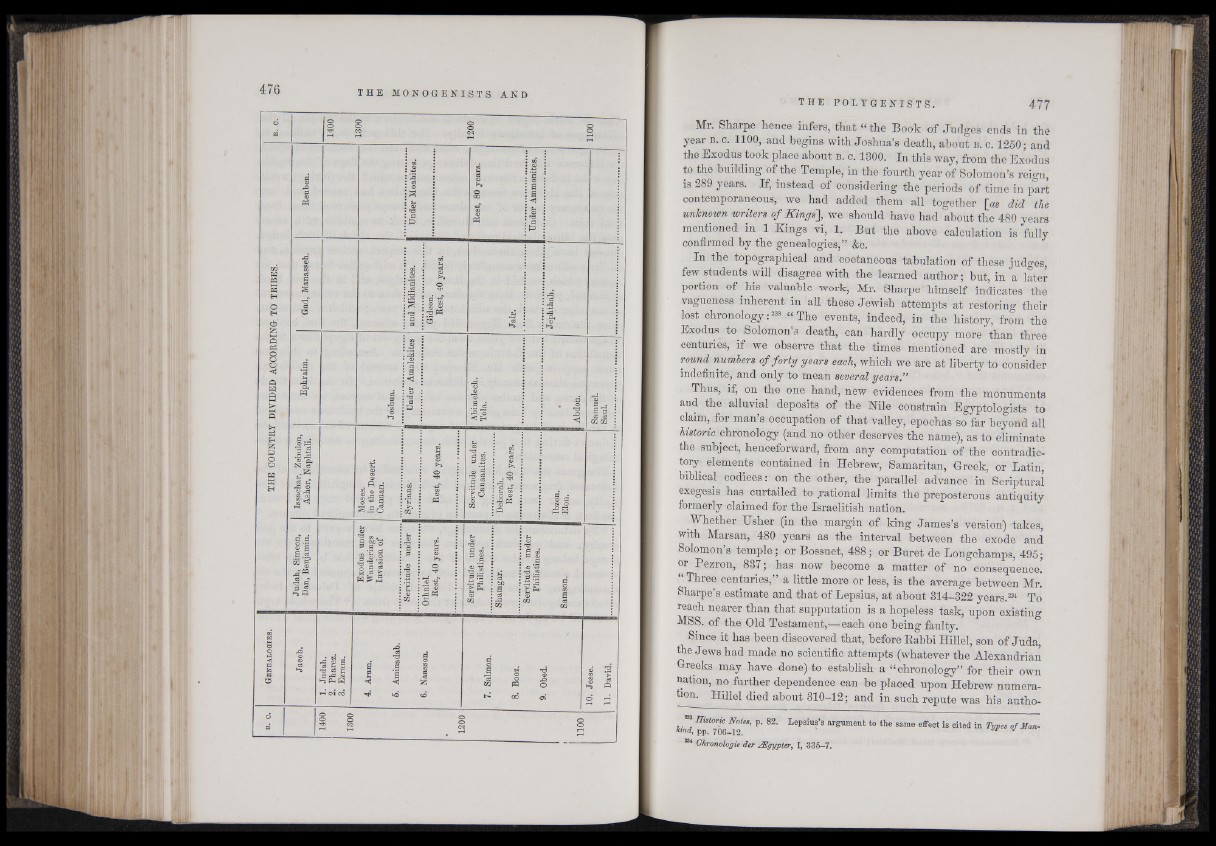
Mr. Sharpe hence infers, that “ the Book of Judges ends in the
year b . c. 1100, and begins with Joshua’s death, about b . o. 1250; and
the Exodus took place about b . c. 1300. In this way, from the Exodus
to the building of the Temple, in the fourth year of Solomon’s reign,
is 289 years. If, instead of considering the periods of time in part
contemporaneous, we had added them all together [as did the
unknown writers of Kings'], we should have had about the 480 years
mentioned in 1 Kings vi, 1. But the above calculation is fully
confirmed by the genealogies,” &c.
In the topographical and coetaneous tabulation of these judges,
few students will disagree with the learned author; but, in a later
portion of his valuable work, Mr. Sharpe himself indicates the
vagueness inherent in all these Jewish attempts at restoring their
lost chronology:233 The events, indeed, in the history, from the
Exodus to_ Solomon s death, can hardly occupy more than three
centuries, if we observe that the times mentioned are mostly in
round numbers of forty years each, which we are at liberty to consider
indefinite, and only to mean several years.”
Thus, if, on the one hand, new evidences from the monuments
and the alluvial deposits of the Kile constrain Egyptologists to
claim, for man’s occupation of that valley, epochas so far beyond all
historie chronology (and no other deserves the name), as to eliminate
the subject, henceforward, from any computation of the contradictory
elements contained in Hebrew, Samaritan, Greek, or Latin,
biblical codices: on the other, the parallel advance in Scriptural
exegesis has curtailed to .rational limits the preposterous antiquity
formerly claimed for the Israelitish nation.
Whether Usher (in the margin of king James’s version) takes,
with Marsan, 480 years as the interval between the exode and
Solomon’s temple; or Bossuet, 488; or Buret de Longchamps, 495;
or Pezron, 837; has now become a matter of no consequence.
|Three centuries,” a little more or less, is the average between Mr.
Sharpe’s estimate and that of Lepsius, at about 314-322 years.234 To
reach nearer than that supputation is a hopeless task, upon existing
MSS. of the Old Testament,—each one being faulty.
Since it has been discovered that, before Rabbi Hillel, son of Juda,
the Jews had made no scientific attempts (whatever the Alexandrian
Greeks may have done) to establish a “ chronology” for their own
nation, no further dependence can be placed upon Hebrew numeration.
Hillel died about 310—12; and in such repute was his autho-
* Historic Notes, p. 82. Lepsins’s argument to the same effect is cited in Types of Man-
tond, pp. 706-12.
234 Chronologie der JEgypter, I, 335-7.